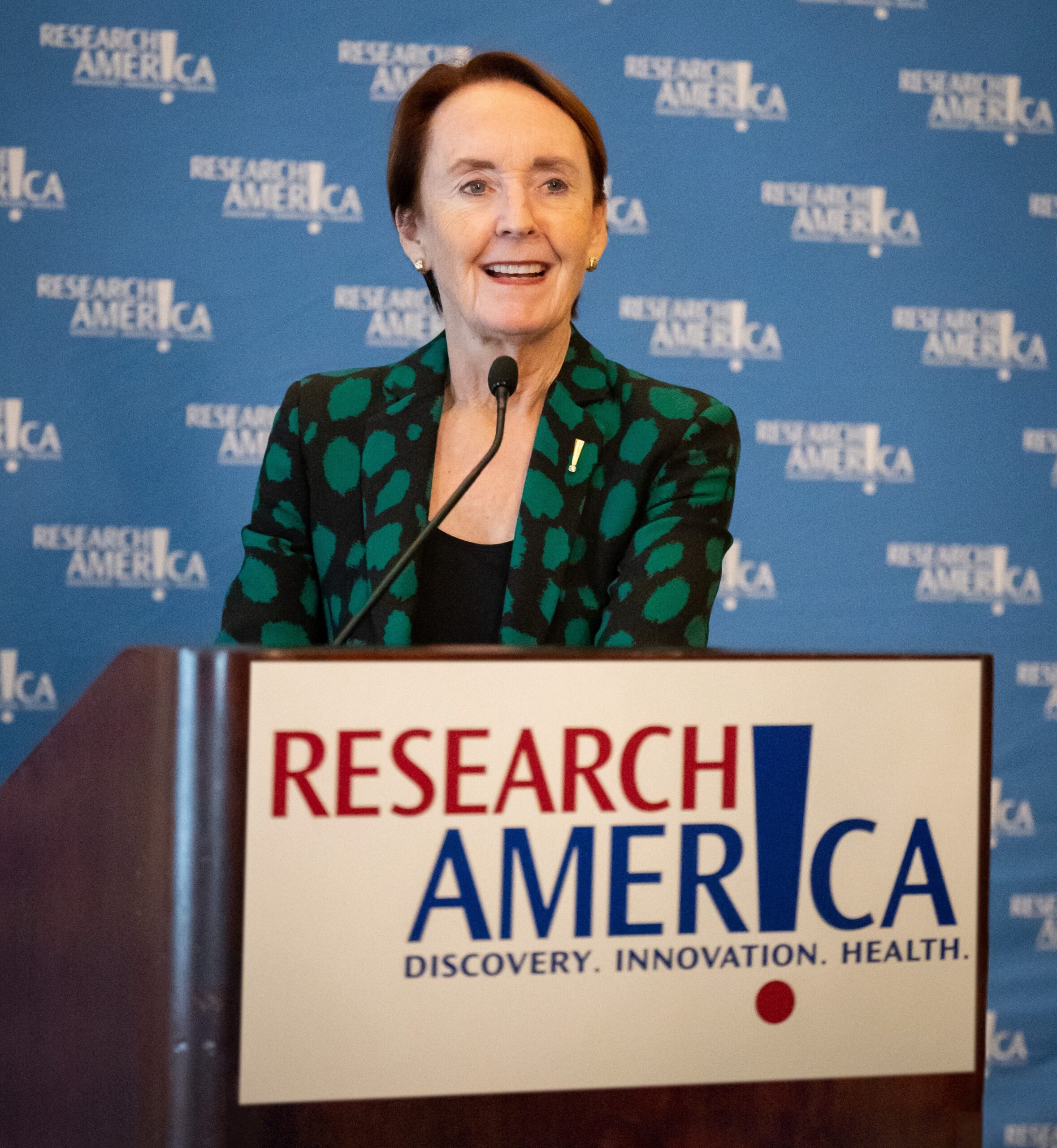Go Bold

Dear Research Advocate,
From 2001–2021, nearly 630,000 people in the U.S. lost their lives to an opioid overdose. If the losses in 2022 and the first few months of 2023 align with those in 2021, the total number of deaths is approaching 730,000. With circulation of a lethal drug combination – fentanyl and the potent tranquilizer xylazine – confirmed in 48 of 50 states, the opioid crisis has taken another, even more deadly, turn.
During Women’s History month, it is fitting that we invited trailblazer and Director of the National Institute on Drug Abuse, Nora Volkow, MD, for a candid conversation about this cruel and complex crisis. What is the path forward as the challenges seem only to multiply? Watch now.
Public Perception, Public Policy: According to a national public opinion survey we recently commissioned, more than two-thirds of adults living in rural areas believe the opioid crisis is getting worse, significantly higher than the nationwide percentage. Why is that important? Public policy priorities are tied to public sentiment (your vote and your opinion matter.) The more individuals in the country who believe current efforts against the opioid crisis are sufficient, the steeper the climb to increased federal funding.
Identifying how public sentiment aligns with current public policy priorities is one of the reasons we routinely commission surveys; another is to understand the public’s ever-evolving views about R&D and the ecosystem behind it. We’ll be releasing our annual Poll Data Summary soon and reviewing key findings during our Annual Meeting, taking place virtually from 1 to 2:15 p.m. ET on April 20. If you are with an alliance member organization, save the date!
On the Hill: Appropriations season is in full swing and several congressional committees will be holding hearings in the coming days to dig into the President’s Budget Request. HHS Secretary Xavier Becerra testified in front of the Senate Appropriations Labor-HHS Subcommittee yesterday, and will be in front of the House Energy and Commerce Health Subcommittee next Wednesday.
Weigh In: As Congress continues to hear budget testimony from federal agency heads, there is still time to submit your own witness testimony for relevant appropriations subcommittees. We’ve updated our FY24 tracker with new appropriations witness instructions and deadlines, and hope you’ll find these tips on submitting testimony useful. Use this new report from United for Medical Research on the economic impact of NIH for inspiration!
Read testimony we submitted about “Labor-H” appropriations, which, within its broad jurisdiction, covers NIH, ARPA-H, CDC, BARDA, and AHRQ funding.
Go Bold: There’s another way to convey the importance of medical and public health progress and grow the army of advocates working to elevate its priority in Washington: write and submit a letter to the editor (LTE). We know getting an LTE published may feel as daunting as a quick climb up Mt. Everest. The truth is, you can and will get published if you keep at it! Check out our new and (we hope) confidence-building guide to entering the LTE fray.
Advocacy Awards Recap: Larry Tabak, DDS, PhD, performing the duties of the director of NIH, is one of the R&D leaders we honored at our Advocacy Awards event last week. Dr. Tabak wrote a brief recap of the event on the NIH Director’s Blog. He and our other honorees engaged in two informal (and all too brief!) panel discussions around science information, communication, and trust. The Honorable Donna Shalala and formidable Bill Novelli moderated the discussions.
Watch this space: videos of both panel discussions will be made available next week. In the meantime, watch the acceptance remarks from Senator Chuck Schumer (D-NY) and Senator Todd Young (R-IN), who received the Edwin C. Whitehead Award for Medical Research Advocacy.
ICYMI: On Tuesday, Yvette Seger of FASEB shared advice on how to respond to RFIs (Request for Information) and NPRMs (Notice of Proposed Rulemaking) from federal agencies. (Watch the discussion.) A timely topic as NIH seeks input on how to strengthen NIH-supported postdoctoral training.
For Research!America Alliance Members: The FDA regulatory approval process and the CMS coverage process for new, amyloid plaque-reducing Alzheimer’s treatments have been, to put it mildly, controversial. Next Tuesday, March 28, from 2 to 3 p.m. ET, veteran health policy expert Nick Bath Jr., a partner at Manatt Health, will join us virtually to shed light on the controversy and its complex implications for patients and research.
If your organization is an alliance member, the Zoom invite should be in your inbox. Contact Jacqueline Lagoy if you don’t see the email and would like to attend.
Stay well, stay safe, and stay connected.




